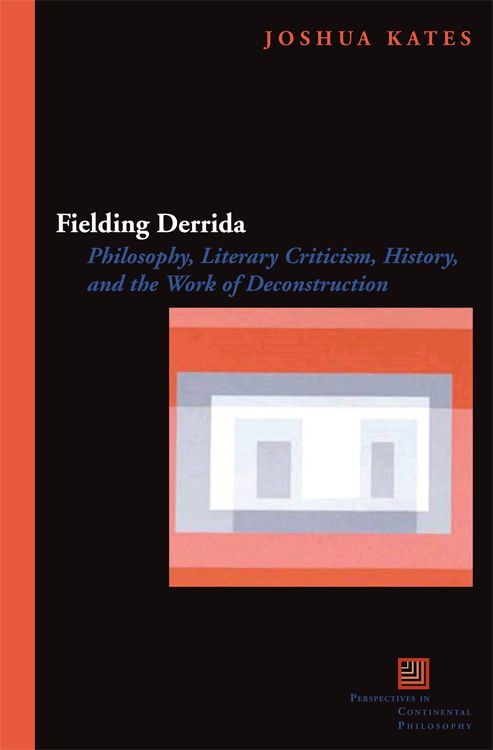Fielding Derrida
Philosophy, Literary Criticism, History, and the Work of Deconstruction

This book can be opened with

How are we to interpret Jacques Derrida’s writings now, after so much commentary has been devoted to his thought and his own astonishing productivity has come to an end? In this groundbreaking book, Joshua
Kates extends his earlier contextualizing of Derrida’s work in relation to Husserl by arguing that we must begin from a frame different from that provided by Derrida himself. His work must be inserted into already
existing fields, thus “fielding Derrida.”
By placing Derrida’s texts in the context of broader fields (such as interpretations of modernity and analytic philosophy of language), Kates captures Derrida’s stances with a new concreteness and an unprecedented
scope, forging links to vital debates across the humanities today.
Readers in a wide range of disciplines will find this a first rate book with insightful discoveries of all sorts to learn from.
Kates has been producing the deepest, most original, and most even-handed treatment available of the relation between Derrida's thought and that of Husserl This new book opens new ways to think about both; it also introduces intriguing new perspectives on the
Derrida-Husserl nexus through probing discussions of Jacob Klein and Maurice Merleau-Ponty. It is an important contribution to the evolving understanding of Derrida's place in the history of modern philosophy.
Fielding Derrida makes new, potentially path breaking connections between Derrida’s work and projects in philosophy, literary criticism, and intellectual history . . .
This intensely philosophical and well-written book addresses the challenge
of the legacy of Derridean thought, and what this thought holds for the
future, by assessing Derrida's actual contributions to a variety of
problems and debates in the contemporary humanities. Once again Kates'
profound familiarity with Husserlian thought proves to be a true asset that
makes this book a powerful and engaging work to read.
New and previously published writings that, among other things, link the French philosopher to Husserlian phenomenology.——The Chronicle of Higher Education

